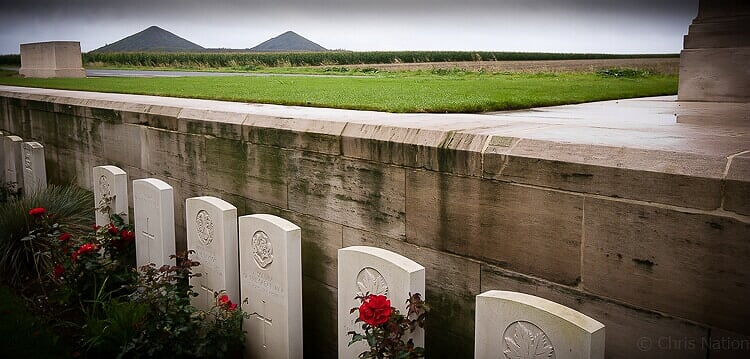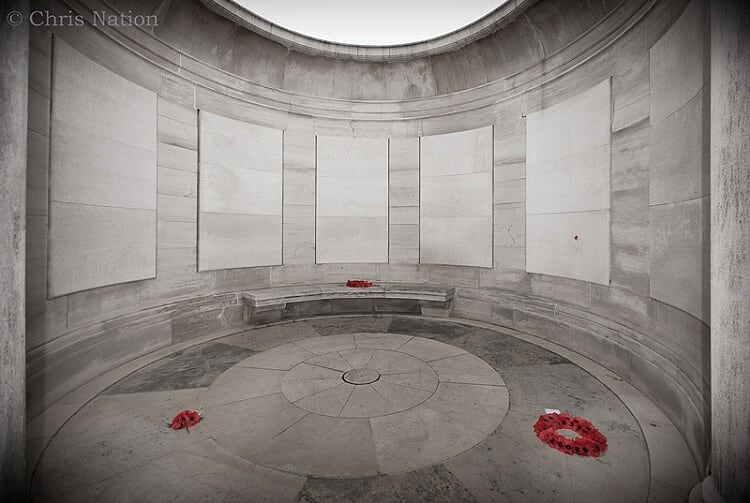Hi all, I’m Gudrun and my husband is Paul. We are moving to Dinan next year, I’m german, he’s british. I’m not too worried about my status, but would anything change drastically during the transition period? Would he be able to "piggyback " on my EU status since we’ve been married for 20 years? I’m none too comfy here no more…
I’m very upset that you should feel uncomfortable living in Britain, and although I can’t apologise on behalf of my fellow-country folk, I do regret very much that you have come to feel unwelcome. I feel rather ashamed.
As you are a EU citizen you will enjoy full rights of residency here in France, and enjoy the benefits that accrue. Your husband will have to apply for residency entitlements on his own account, and there is guidance on doing this which other contributors will point you to.
I would think that the sooner you can make the move, if your circumstances allow, the better, during the ‘transition period’ that will follow ratification of the ‘leave’ decision, which seems likely to occur very soon.
Bon courage et bonne chance. ![]()
![]()
![]()
![]()
![]()
Hello Gudrun.
As Peter said, you will be fine, Brexit won’t affect you. As an EU citizen you will continue to have the right to freedom of movement, and as the spouse of an EU citizen your husband can come with you as long as you are exercising FoM correctly (ie you’re a worker with a job in France or you’re an inactive with sufficient resources or you have some other recognised valid status) . He’ll have the right to work and everything. He will need to apply for a carte de séjour within 3 months of arriving but all he needs to do is prove that he’s your husband, you’re an EU citizen and you have a valid status in France. His CdS is free of charge.
So whether it’s a hard brexit or a soft brexit or a red white and blue brexit, you don’t need to worry because you’ll still be an EU citizen. Dinan is a lovely town, you must be looking forward to the move very much.
Thank you for the advice, we bought our house 20 years ago, so yes, we know what it all means and it helps that my french is good and will be fluent in another 3 months or so. Paul’s french is a bit wobbly yet, but it won’t take long for him either. Our house is currently registered as second residence, I will keep asking everyone pesky questions as they arise. Last night’s results have certainly helped to concentrate our minds… To answer you, Peter: I have wanted to live in the UK since my first english lesson at the age of 10. At 18 I settled here, and now I’m 53. Earlier this year I was turned from a citizen into an immigrant and had to apply for the euphemistically named settled status. It means I had to apply for permission to run my company, employ british workers, live in my own house… I can assure you that it’s a sure fire way of alienating someone. And with my country’s history it is frightening to see echoes of the past.
I had much the same feeling about Germany when I first started learning German at school in 1951. We studied German using an illustrated textbook labelled ‘Deutsches Leben’ and it captured my imagination.
I found a German pen-friend a little older than me, from Schöneberg in Berlin, whose parents died in the war, he was raised in the rubble by his Oma. He was conscripted into the Hitler-Jugend and, on a visit to England in 1953, we giggled over songs he learned as we lay in our beds in a Birmingham semi. My mother came and told us off about making noise when we should be sleeping.
We were firm friends for many years afterwards. I still miss his friendship and him.
I have always had a strong affinity for the German language, and speak it more intuitively than I speak French, although I am improving steadily from 70 years distant schoolboy lessons. I think my closeness to German life and language may have an ancient atavistic origin, it is too natural to have been wholly acquired, I think.
Hello Gudrun,
How sad to hear about what effect Brexit has had on you. We are in a similar situation. My wife feels less welcome and I hate what populism has done here.
I also feel disenfranchised. I hope things are going well for you. We need to do a lot of French study. We hardly know France and hope a stay in the spring will help. I am most concerned with healthcare and it seems despite my Wife’s FOM, we will still need to try to become resident in advance of the end of transition else we will face a lot of expense. I think we will enjoy much about living in France. I’ll miss pubs and the BBC. Maybe I can find a way to keep seeing the latter though the aim is to integrate fully. How are you getting on?
No problems re the BBC, TV is readily available via FreeSat (and all other British mainstream and niche TV channels), plus BBC radio. Internet radio via a mobile phone or Internet Radio gives you access to radio worldwide.
But a good internet connection is VITAL, so you must check this scrupulously when it comes to deciding where you are going to live.
As for pubs, there are a few ‘British-style’ pubs dotted around, but they have a fake feel about them, and they sit uneasily alongside French bar culture, which is the French equivalent but is just as complex in its own way and needs to be adjusted to gradually if you are British.
I’m happy to hear I can still get the BBC - or at least till Cummings (Johnson) kills it off. I am a great fan of BBC Radio and TV. I’m hoping that moving to a warmer climate will mean we can spend less time indoors however. When we visited Bordeaux last year the apartment had tv with a very good nature channel.
Is there much quality tv in France?
What’s fast broadband availability like in rural areas? I admit I’ve always been spoiled by 40Mb/s and upwards.
I am in South Burgundy. We have fast broadband in a rural location. But it varies a great deal village to village. See attached screenshot of upload/download speed.
I suppose it depends on your taste. I’ve found it’s at least as good as British TV, but the content is much the same, police and crime series, lots of current affairs shows, some more cerebral than others, game and quiz shows that mirror the UK output, soaps and comedies, culture and history, ooh aah property porn, nature and travel shows, lots of cooking shows including some interesting regional tours de cuisine, and - of course - huge sport coverage, with top level stuff live on the pay channels like Canal+, Frances Sky equivalent. Films galore. Music, all genres (though I’m old fashioned and there’s little to my taste and I prefer radio).
I’ve probably not been much help.
Of course, it helps if you can speak/understand some French, and the media do give you a leg up if you persevere. Much of the conversation is at mitrailleuse pace. News is more measured, but still not easy to follow and catch the detail and nuances. After four years here I can read French without translating it in my head, and follow most one-to-one conversations, and make myself generally understood in most contexts, but some people speak the way some English people speak informally e.g. Wervyabin? Binlyinlowavya?
Aintseenyaferyonks.
I’lltellthemissisIseenya.
Fanciapint ?
If people know you’re English, and they pick it up at once, they will usually slow down and take pains to speak clearly. I am making fair progress but confidence ebbs and flows. If you are working or studying here it helps. Otherwise it’s a bit of a struggle to meet enough people regularly, and where you have to react quickly when spoken to. You really need to get involved with neighbours and local commerce’s, and I would strongly urge not to tie in with too many English people who struggle with French. They will complicate the efforts you make, with jealousy and even mistrust.
As for Wi-Fi speeds, I can’t say much of help. We live in a small rural town in La Manche, Basse Normandie. Our internet connection (Orange landline telephony) is utterly reliable for everyday purposes and we have internet TV, phone and several appliances. As I write download speed is 15 Mbps but it gives us hitchfree access to all the downloads we need, with no appreciable delays.
As long as you start with a good clear bonjour madame/monsieur/mesdames/messieurs ![]()
Make sure you check out internet access in any property you are interested in, it can be very poor if you are at the end of a line. And mobile phone reception too. We knew ours was bad, but decided to cope as not running a business that relied on speed. But at 2mbs it is frustrating! Although the upside is that something has to be good for us to bother.
For anyone scratching around for good sources of information for a move to France, this is the best I’ve found. https://www.francerights.org/about-us.html
Some things you never forget -
“Herr Braun ist der Vater!”
What has stayed in my mind was the chapter in Deutsches Leben dealing with the collision of a German city tram with another vehicle, and the conductor who called out to the passengers, "Ist jemand verletzt?'. (Is anyone hurt?).
That simple, caring enquiry in everyday German, albeit fictional, catapulted me, a early-teen Brummie schoolboy in early post-war England into a world where all humans were alike, living the same everyday lives, riding trams, communicating the same concerns, and helping each other in difficulty or hurt.
This when the world outside England, outside our own town, was mysterious, just glimpsed occasionally in dusty encyclopaedias, rare black and white slides of exotic beasts on school projectors, or Tarzan films.
The phrase still glows warmly in my treasure-store of unforgettables, as does my strange and unexplicably easy affinity with Germany and its language. It led to my befriending a German boy of my own age in Berlin (a pen-friend), a former Hitler Jugend. We were as brothers, he visited our home, and we “grew up together”.
Hi, does anyone have a property to let for roughly 4 months plus? Can be furnished or unfurnished as long as there is some kind of storage facility, it would be for 3 senior citizens. All areas considered. Many thanks.
We went to the commemoration of the centenary of the Battle of Loos. As our daughter is married to an Austrian, our grandsons were the only ones present with relatives who had fought on both sides.
For some years I was a battlefield guide. Every year the Cheltenham and Glouc branch of the Western Front Assoc went on a W.F. tour. Loos was one of them.
Loos …what a disaster. Awful. One account I have read, by a German officer, said, “Never have machine guns had such easy work”. The British first use of gas was a failure.
The struggle for possesion of Les Double Crassiers was ferocious and, for the B.E.F., a failure.
Anyone going that way must be sure not to miss Dud Corner Cemetery. Until 1992 John, the son of Rudyard Kipling, was commemorated on the wall panel for the missing of The Irish Guards.
There were, of course, tens of thousands of tragic stories associated with WW1 but the story of John Kipling has always touched me deeply. He was rejected by both the Army and Royal Navy on the grounds of poor eyesight. His father, already world famous and a Nobel Prize winner, pulled strings and John was commissioned into The Irish Guards.
He arrived in France on August 17th 1915, his 18th birthday. He was killed at Loos on 27th September.
His father, previously vigorously hawkish for the war wrote,
If any question why we died,
Tell them, because our fathers lied.
Lt John Kipling’s grave has since been identified, it previously having been the grave of an Irish Guards Lt ‘Known unto God’.
Les Doubles Crassiers from Dud Corner Cemetery
The Gloucester’s Alcove. The missing of The Gloucestershire Regiment. Dud Corner Cemetery Memorial.
There is one light note to come out of Loos. Sir John French, C.i.C of the B.E.F. whose HQ was at St Omer, was sacked on account of Loos. He quipped, "I suppose I will be apponted Lord Omer because I am 'the sent ‘omer’.
In fact he was created Field Marshall Vicount Ypres.
Didn’t feel quite right to ‘like’ such an interesting reflection on tragedy, Christopher - so I’ll just say ‘thankyou’.



